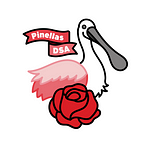Phil Ochs: The Radical Singer/Songwriter of the New Left
By Pinellas DSA member Bruce Nissen
Editors note: at the end of this post, you will find a link to a presentation by Bruce Nissen on this subject, as a supplement to this post.
As a DSA member who is over 70 years old, I’m finding that a lot of my young comrades are very curious about what it was like in the 1960s and early 1970s. And, mystifying to me, a number of them are fascinated by tales I can tell of my “radical student days” during those years. I’ve never thought my own life was all that interesting, but I will admit that the late 1960s were indeed very, very interesting times. I am very grateful that I came to political maturity in that period; it certainly shaped the trajectory of rest of my life.
One enormous part of the 1960s campus milieu was the music. Especially folk music and rock music were integral to the emerging “youth culture,” and some of it took on a decidedly political tone. Here I want to highlight one very radical singer-songwriter of the time who apparently very few of my younger friends have ever heard of. I saw him live numerous times; he was a major radicalizing force to me and many others. He was one of my heroes.
His name was Phil Ochs. He was a contemporary of Bob Dylan and they both emerged from the Greenwich Village folk scene in the early/mid-sixties. Dylan of course went on to fame and fortune and a long life. Phil had a much more tragic trajectory; he took his own life in 1976 when at the bottom of one of his manic-depressive cycles. Despite this sad ending, Phil was an incredible songwriter and performer who influenced many of us at the time.
What I want to do here is introduce my younger DSA comrades to Phil Ochs, primarily through exposure to his songs and performances. What follows is a series of links to YouTube videos of Phil Ochs performances.
Many (although not all) of Phil’s songs were topical commentaries on the events of the day. With the Vietnam War raging, opposition to that war was a common Phil Ochs topic. Here is Draft Dodger Rag, one of the first of his songs I ever heard:
https://www.youtube.com/watch?v=tFFOUkipI4U
Another anthem of the anti-Vietnam War movement was his song I Ain’t Marching Anymore:
https://www.youtube.com/watch?v=uRU_ruqnR6Q
And as the war dragged on into the 1970s, his song The War is Over was his attempt to hasten its demise. Here he is performing it live:
https://www.youtube.com/watch?v=ZOs9xYUjY4I
Of course, the Vietnam War was not his only target. Here is his anthem against police, I Kill Therefore I Am: https://www.youtube.com/watch?v=VQBLBvi67fw
Some of his music consisted of tributes to those songwriters who had gone before him who he admired. One was Woody Guthrie, America’s troubadour who wrote This Land is Your Land and many other songs, and who was much more radical than the sanitized version of him that has been passed down to us. Here is Phil’s salute to Woody, Bound for Glory:
https://www.youtube.com/watch?v=xONuHXndRuI
Another radical singer/songwriter of earlier vintage that he greatly admired was Joe Hill, the organizer for the radical union the Industrial Workers of the World (IWW, or Wobblies). Here is Phil’s song The Ballad of Joe Hill: https://www.youtube.com/watch?v=kozWk8Ff_Xg
Not all of Phil Och’s songs were overtly political. He also wrote some haunting ballads that are more personal. Here I want to simply highlight two that have been covered by many other artists. First up, perhaps his most beautiful song of all time, Changes (this one has a lot of great pictures of Phil in the video): https://www.youtube.com/watch?v=rlVfVBFdMaM
And his There But for Fortune has also been covered by many other artists and folksingers:
https://www.youtube.com/watch?v=Smlg7sPUmRs
There are so many more Phil Ochs songs that are burned into my brain, but I fear that this could go on too long, so I won’t put any more in this article. In his final years, as his life was unravelling he went through a “gold lame suit” Elvis Presley-Merle Haggard phase that failed to connect his radical politics with his gestures toward American pop culture: his old fans hated it and apolitical pop music fans did not pick up on his music at all. Near the end he wrote some extremely poignant and revealing songs, like Crucifixion, Another Age, My Life, Chords of Fame and others. You can find almost all of these and many more on YouTube. In addition a fair bit of his music is possible to buy. There is a documentary film on his life There But for Fortune and folk musicians still celebrate his life and legacy through tribute get-togethers around the country.
He was an extremely flawed human being. But at the time he was my hero. I’m hard pressed to think of any contemporary vocal artists today who play a similar role to the one he played in the 1964–1974 period. I believe my young DSA comrades would benefit from an acquaintance with his work.
A presentation on the subject by the author can be found here: https://youtu.be/JFMPEfUoz6s
